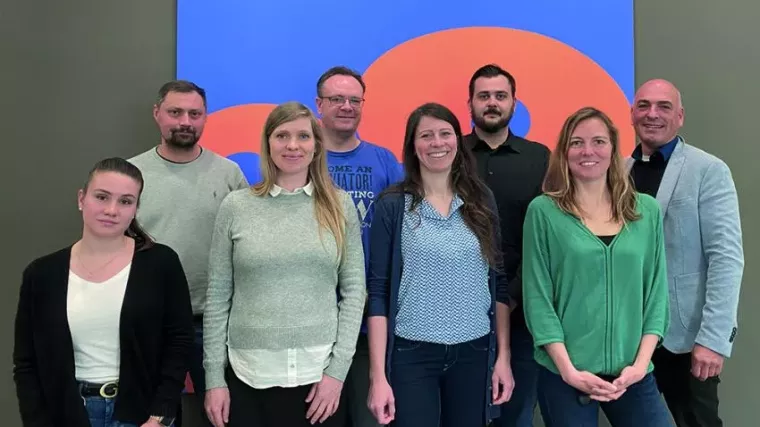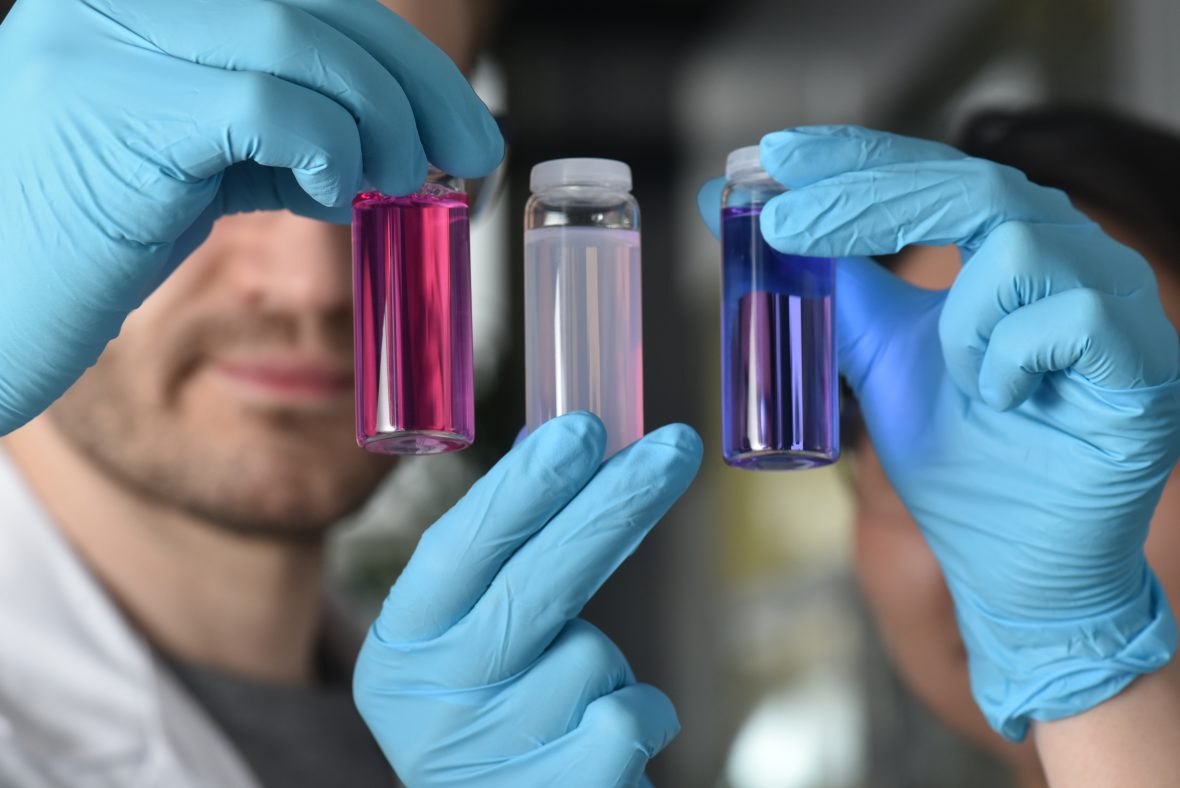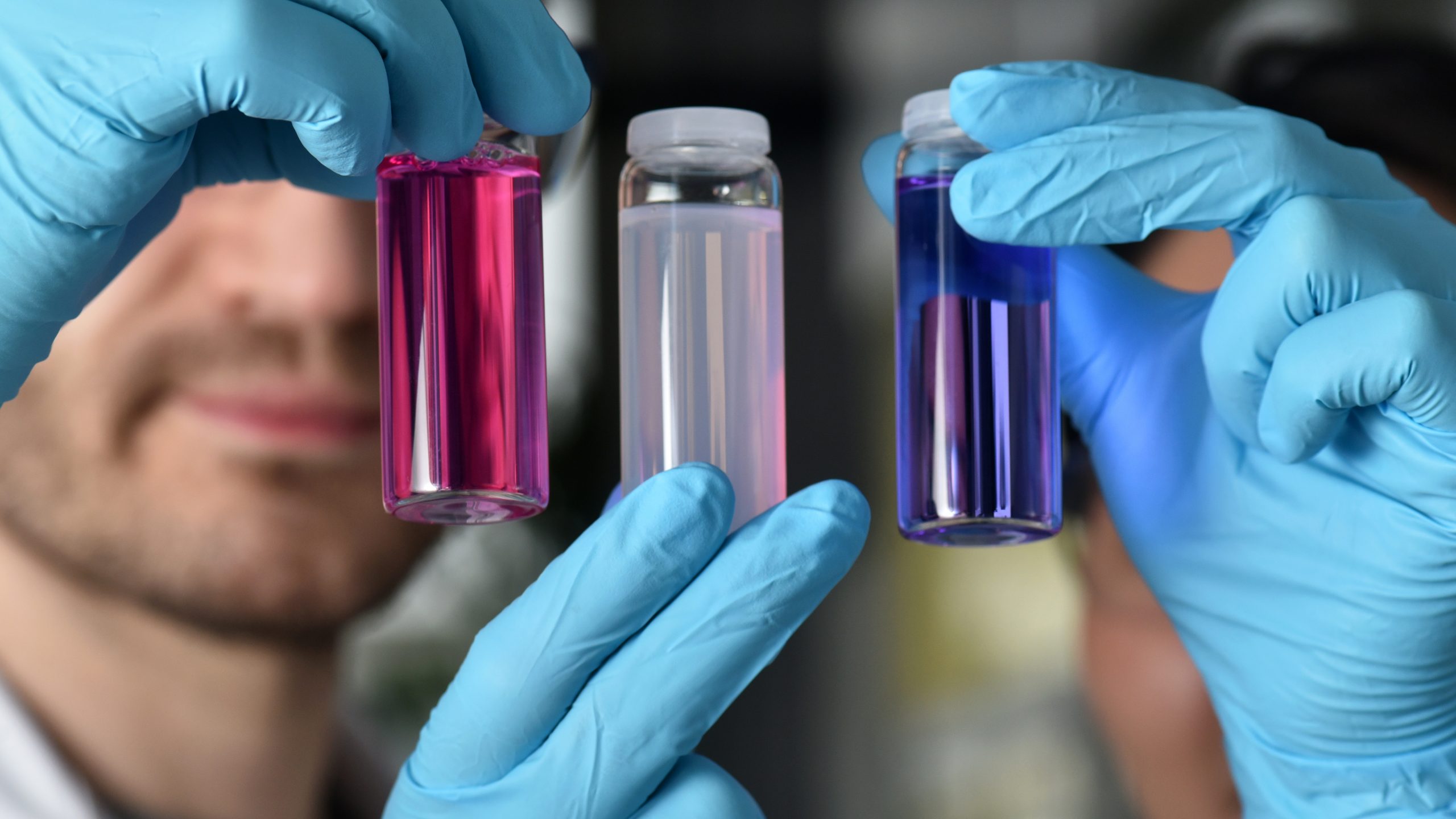News
Announcement from: June 29, 2024, IQ Innovationspreis Mitteldeutschland 2024 im Cluster Chemie / Kunststoffe Silver Award for NGP Polymers GmbH

Precisely Effective – New Polymers Unlock Untapped Active Ingredients for Future Therapies
To safely deliver a drug to its target location in the body, excipients are needed. They act as protective capsules for the active ingredient and release it only at the destination. A prominent example is the mRNA vaccines against COVID-19, which do not work without such excipients. Polymers are often used for this purpose, but so far only about ten variants have been approved. This excludes many potential active ingredients because the approved polymers are not suitable for every active ingredient. Additionally, the frequent use of identical polymers can lead to the organism developing antibodies that recognize these and reduce their effectiveness. The team at NGP Polymers from Jena does not accept these limitations and is researching new polymers that have proven ideal as excipients in previous studies. They are developing new, flexible, and qualified processes for large-scale production to advance the approval of these excipients. This will make many active ingredients usable that previously failed at the hurdle of transport through the body. The potential of this technology is enormous, especially in cancer immunotherapy, vaccines, and the treatment of genetic defects, where RNA-based active ingredients play a central role. This innovation is indispensable for the therapies of the future and, according to ongoing studies, is expected to tap into a multi-million-dollar market in the coming years.
The publication by IQ Innovation Prize Central Germany can be read here.
Message from: May 17, 2023, CHEManager: Polymer excipients for the pharmaceutical industry
“We want to help Germany regain some of its former status as the world’s pharmacy.”

Photo: CHEManager 05/2023
NGP Polymers develops novel pharmaceutical polymers for improved drug formulations
The whole interview can be read here.



Developing novel special lipids for RNA drugs
Compared to RNA-based vaccines, new compositions of the drugs are needed to deliver the new medications to the disease site in a targeted manner. To do this, the RNA will be packaged in innovative solid-lipid nanoparticles with polymer excipients. The nanoparticles should stably encapsulate the RNA drugs and deliver them to specific organs that were previously difficult to reach, where they are released after cellular uptake. The goal is a tissue-specific effect. And finally, the special lipids should ideally be such that they can be completely degraded or excreted by the body after release of the RNA.
The German Federal Ministry of Economics and Climate Protection, through its project management organization VDI/VDE, will fund the research consortium coordinated by ISAR Bioscience with close to 13 million for three years. Of this amount, Friedrich Schiller University in Jena will receive just under 1.6 million euros and its spin-off Next Generation Pharma Polymers GmbH (NGP Polymers GmbH) will receive 2 million euros. The start-up company moved into an office on the spin-off floor of the Center for Energy and Environmental Chemistry (CEEC Jena) at Jena University in November 2022 with its first three employees – all graduates of Jena University. It plans to move in the new incubator lab2fab building of the Technology and Innovation Park (TIP) Jena after the completion in 2024.
The project commitment is part of an initiative to promote RNA-based technologies. These are to be further advanced in Germany and corresponding production facilities built so that the reagents required for vaccines needed in the future, as well as for new RNA drugs, can be produced quickly in the country.
Developing novel special lipids for RNA drugs
Compared to RNA-based vaccines, new compositions of the drugs are needed to deliver the new medications to the disease site in a targeted manner. To do this, the RNA will be packaged in innovative solid-lipid nanoparticles with polymer excipients. The nanoparticles should stably encapsulate the RNA drugs and deliver them to specific organs that were previously difficult to reach, where they are released after cellular uptake. The goal is a tissue-specific effect. And finally, the special lipids should ideally be such that they can be completely degraded or excreted by the body after release of the RNA.
The German Federal Ministry of Economics and Climate Protection, through its project management organization VDI/VDE, will fund the research consortium coordinated by ISAR Bioscience with close to 13 million for three years. Of this amount, Friedrich Schiller University in Jena will receive just under 1.6 million euros and its spin-off Next Generation Pharma Polymers GmbH (NGP Polymers GmbH) will receive 2 million euros. The start-up company moved into an office on the spin-off floor of the Center for Energy and Environmental Chemistry (CEEC Jena) at Jena University in November 2022 with its first three employees – all graduates of Jena University. It plans to move in the new incubator lab2fab building of the Technology and Innovation Park (TIP) Jena after the completion in 2024.
The project commitment is part of an initiative to promote RNA-based technologies. These are to be further advanced in Germany and corresponding production facilities built so that the reagents required for vaccines needed in the future, as well as for new RNA drugs, can be produced quickly in the country.
https://www.uni-jena.de/230130-base
https://idw-online.de/de/news808416

NGP Pharma Polymers
CEOs Dr. Stephanie Schubert & Dr. Georg Hochwimmer
Botzstrasse 5
07743 Jena
stephanie.schubert@ngp-polymers.de georg.hochwimmer@ngp-polymers.de